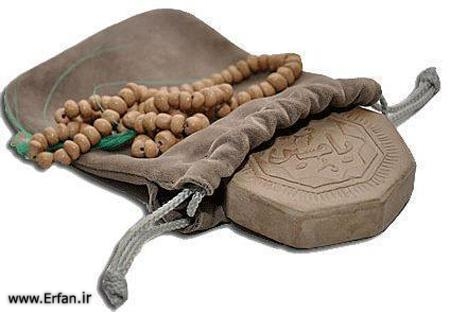
Muhammad Hussain al-Muzaffari believes it was started by the Holy Nabi (Sallallahu alayhi wa Sallam) himself, he thus wrote in his Tareekh al-Shi''ah (History of the Shi''ah):"The call for Shi''asm started with the day when Grand Savior Muhammad [sawa] shouted the word La Ilaha illallah in Makka''s sections and mountains....and hence, the call to become a Shi''ite for Abu al-Hasan [as] (Ali) by the Prophet [sawa] went side by side with the call for the two testimonies" [Tareekh ash-Shi''ah, pp. 8-9, printed in Qum, Iran.]
so al-Muzzafari is stating:
The ''call'' for Shi''aism started at the beginning of the Prophetic mission.
The ''call'' for Shi''aism did indeed begin here. The writer is stating that the root of Shi''a aqeedah, namely that Ali ibne abi Talib (as) is the wasi and khalifa of Rasulullah (s) began right at the beginning of the Prophetic Mission.
The first command ordering the Messenger (s) to first proclaim Islam was to his close relatives:
"And warn your tribe of near kindred..." (The Qur''an 26: 214)
In accordance with the verse Rasulullah (s) summoned his close relatives and delivered this speech, the first call to Islam:
"Banu Abd-al Muttalib, I don''t know of any young man among the Arabs who has brought for his people something better than what I have. I bring the best of this world and the world after, since God has commanded me to summon you. Which of you will aid me in this matter, so that he will be my brother, my Wasi (trustee, caretaker) and successor (Khalifa) among you?" They all held back, and although I was the youngest and the most bleary eyed, pot bellied and spindly legged of them I said "I will be your helper Oh Prophet of God". The Holy Prophet then put his hand on the back of my neck and said "This is my brother, caretaker and successor among you. Listen to him and obey him".
This occasion is called the event of Dawath zula-e-shira and countless Sunni scholars have narrated it, in a similar way.
1. Tarikh, by al Tabari, Vol 2 p 217 and in the English translation by W.M.Watt, Vol 6 pp 90-91
2. Tafsir, by al Tabari, Vol 19, p 121
3. Tarikh, by Ibn Athir, Vol 2 p 62
4. Musnad, bu Ahmed Ibn Hanbal, Vol 1 p 159
5. Kifayat al Talib, by al Ganji p 89
6. Khasais, by al Nasai, p 18
7. Sharh Nahjul Balagha, by Ibn Abi''l Hadid Muttazali, Vol 3 p 255
8. Sharh al Shifa, by al Khifaji, Vol 3 p 37
9. Tarikh, by Abul Fida, Vol 1 p 116
10. Tarikh, by Ibn Asakir, Vol 1 p 85
11. Durre Manthur, by Jalaladdin Suyuti, Vol 5 p 97
12. Jamial Jawami, by Suyuti, Vol 7 p 392
13. Tafsir, by Al Khazzin Alauddin Baghdadi, p 390
14. Tafsir al Khazin, by Alauddin al-Shafii, Vol 3 p 371
15. Shawahid al Tanzil, by al Hasakani, Vol p 371
16. Kanz al Ummal, bu al Muttaqi al hindi Vol 15, p 15
17. al Sirah al Halabiya, Vol 1 p 311
18. Dalail al Nabawiyyah, by al Baiyhaqi, Vol 1, p 428
19. al Mukhtasar, by al Fida, Vol 1 p 116
20. Life of Muhummud, by Husnain Haykal, p 104 (1st Arabic edition, mysteriously deleted in the second edition!)
21. Tadhib al Athar, Vol 4 p 62
22. Muhummud from the earliest sources, by Marin Lings, p 51
It was right at the beginning of his mission that Hadhrath Muhammad (sa) set out three guiding principles, that al-Muzzafari had correctly described as "the call for Shi''asm" namely that:
1. There is only one God
2. Hadhrath Muhammad (s) is God''s Messenger
3. Ali is the brother, wasi and khalifa of Rasulullah (s)
In other words Shi''aism existed in all but name. The seed of Shi''a aqeedah was ''planted'' at the Dawat as is stated by al-Muzzafari and blossomed as a clear group with the name Shi''a after the death of Rasulullah (s) as commented on by al-Nubakhti.
So (1) and (2) rather than contradict, in fact compliment one another.













